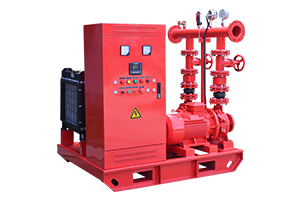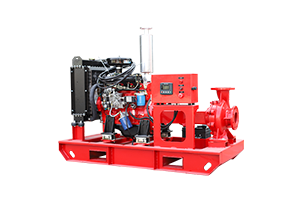-
 Jan 12, 2024What measures are taken to prevent corrosion in fire pump impellers, and how often should inspections be conducted?Preventing corrosion in fire pump impellers is essential to ensure the reliable operation of the fire pump system. Here are some measures taken to prevent corrosion in fire pump impellers, along with recommendations for inspection frequency:
Jan 12, 2024What measures are taken to prevent corrosion in fire pump impellers, and how often should inspections be conducted?Preventing corrosion in fire pump impellers is essential to ensure the reliable operation of the fire pump system. Here are some measures taken to prevent corrosion in fire pump impellers, along with recommendations for inspection frequency:
View details -
 Jan 12, 2024How are fire pump diesel engines protected from water ingress during floods or heavy rainfall?Fire pump diesel engines are designed to withstand adverse weather conditions, including floods or heavy rainfall, to ensure their reliability during emergencies. Here are some common methods used to protect fire pump diesel engines from water ingress:
Jan 12, 2024How are fire pump diesel engines protected from water ingress during floods or heavy rainfall?Fire pump diesel engines are designed to withstand adverse weather conditions, including floods or heavy rainfall, to ensure their reliability during emergencies. Here are some common methods used to protect fire pump diesel engines from water ingress:
View details -
 Jan 11, 2024How are fire pump controllers synchronized in multi-pump systems for efficient operation?Synchronizing fire pump controllers in multi-pump systems is crucial for efficient and reliable operation. Synchronization ensures that multiple pumps work together seamlessly to provide a consistent and reliable water supply for fire protection systems. Here's an overview of how fire pump controllers are synchronized in multi-pump systems:
Jan 11, 2024How are fire pump controllers synchronized in multi-pump systems for efficient operation?Synchronizing fire pump controllers in multi-pump systems is crucial for efficient and reliable operation. Synchronization ensures that multiple pumps work together seamlessly to provide a consistent and reliable water supply for fire protection systems. Here's an overview of how fire pump controllers are synchronized in multi-pump systems:
View details -
.jpg) Jan 11, 2024How are fire pump flow control devices calibrated, and what is their role in the system?Fire pump flow control devices play a crucial role in fire protection systems by regulating and controlling the flow of water from fire pumps to sprinkler systems or other firefighting equipment. Calibration of these devices ensures that they operate accurately and efficiently. Here's an overview of the calibration process and their role:
Jan 11, 2024How are fire pump flow control devices calibrated, and what is their role in the system?Fire pump flow control devices play a crucial role in fire protection systems by regulating and controlling the flow of water from fire pumps to sprinkler systems or other firefighting equipment. Calibration of these devices ensures that they operate accurately and efficiently. Here's an overview of the calibration process and their role:
View details -
 Jan 10, 2024How are fire pump systems integrated with emergency power systems to ensure continuous operation during power outages?Integrating fire pump systems with emergency power systems is critical to ensure continuous operation during power outages, as these systems play a crucial role in fire protection. Here are common methods used to achieve this integration:
Jan 10, 2024How are fire pump systems integrated with emergency power systems to ensure continuous operation during power outages?Integrating fire pump systems with emergency power systems is critical to ensure continuous operation during power outages, as these systems play a crucial role in fire protection. Here are common methods used to achieve this integration:
View details -
 Jan 10, 2024How are fire pump controllers protected from electromagnetic interference or radiofrequency interference?Fire pump controllers are crucial components in fire protection systems, and protecting them from electromagnetic interference (EMI) and radiofrequency interference (RFI) is essential to ensure their reliable operation. Here are some common methods employed to safeguard fire pump controllers from EMI and RFI:
Jan 10, 2024How are fire pump controllers protected from electromagnetic interference or radiofrequency interference?Fire pump controllers are crucial components in fire protection systems, and protecting them from electromagnetic interference (EMI) and radiofrequency interference (RFI) is essential to ensure their reliable operation. Here are some common methods employed to safeguard fire pump controllers from EMI and RFI:
View details






